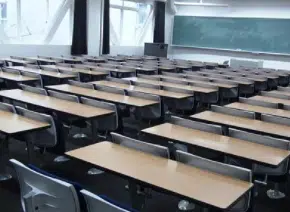The Nebraska Education Association says staff shortages, mental health concerns and pandemic-induced stress are pushing students and educators to the breaking point. More than 3,100 educators responded to a new survey conducted in November.
“The social, emotional and academic toll of the COVID-19 pandemic is growing worse by the day,” says NSEA President Jenni Benson. “Staff shortages and quarantines have stretched teachers thin to the breaking point. In addition to their own classes, teachers are covering classes for teachers who are ill or quarantining. They are losing their plan time, their time for one-on-one instruction with students, time to collaborate with their colleagues, and time to talk with parents. And this is the second year of these challenges – everything is compounded. Our survey results show that the situation is worse this school year than it was last year.”
A shortage of substitute teachers and educational support professionals, such as paraeducators, bus drivers, custodians and food service employees is making it difficult for schools to provide individualized instruction, keep students fed or even get them to school.
“Educators are also reporting a significant increase in student behavior issues, and teachers are worried about their students. 84% of survey respondents said they have experienced an increase in student mental health concerns. Everyone is on edge. Our students and educators need help and support, and they need it now,” Benson said.
She says the increased student behavior issues are, in part, a reflection of the stress the pandemic has put on children, upending their education, their schedules and their social lives. On top of the staff shortages leading to class coverage demands, the behavior challenges are exhausting our teachers and underscore the need for support services for both students and teachers.
“Some of the federal COVID funds for Nebraska must be used to provide more mental and behavioral health resources for students, educators and schools,” Benson says. “We need 24/7 access to mental health services statewide – be that telehealth, 800 numbers, etc.”
“For years, NSEA has been advocating for more mental health supports for students, for smaller class sizes to allow for more one-on-one instruction that will lead to higher student achievement and fewer discipline problems, and for better salaries for school employees,” Benson says. “Frankly, we are about out of time.
NSEA has asked lawmakers to use some of the federal COVID relief funds to provide school employees with stipends for their extra work. It is also pushing for the elimination of the Praxis CORE exam, an expensive and obsolete test that prevents too many potential educators from entering the education profession.
The survey also revealed there is an 88 percent shortage in paraprofessionals and a 97 percent shortage in substitute teachers. One in three educators say they plan to leave the profession at the end of this school year.








